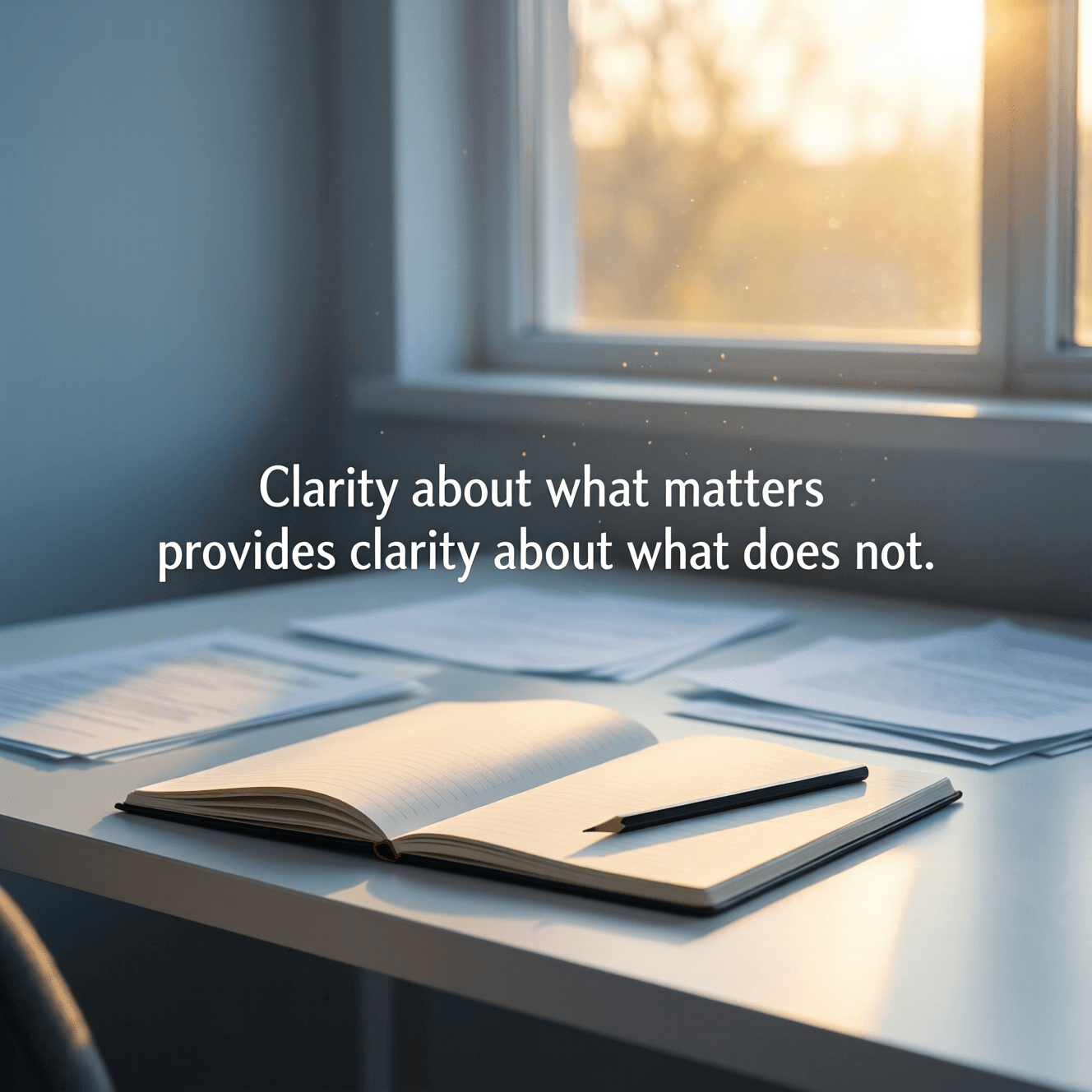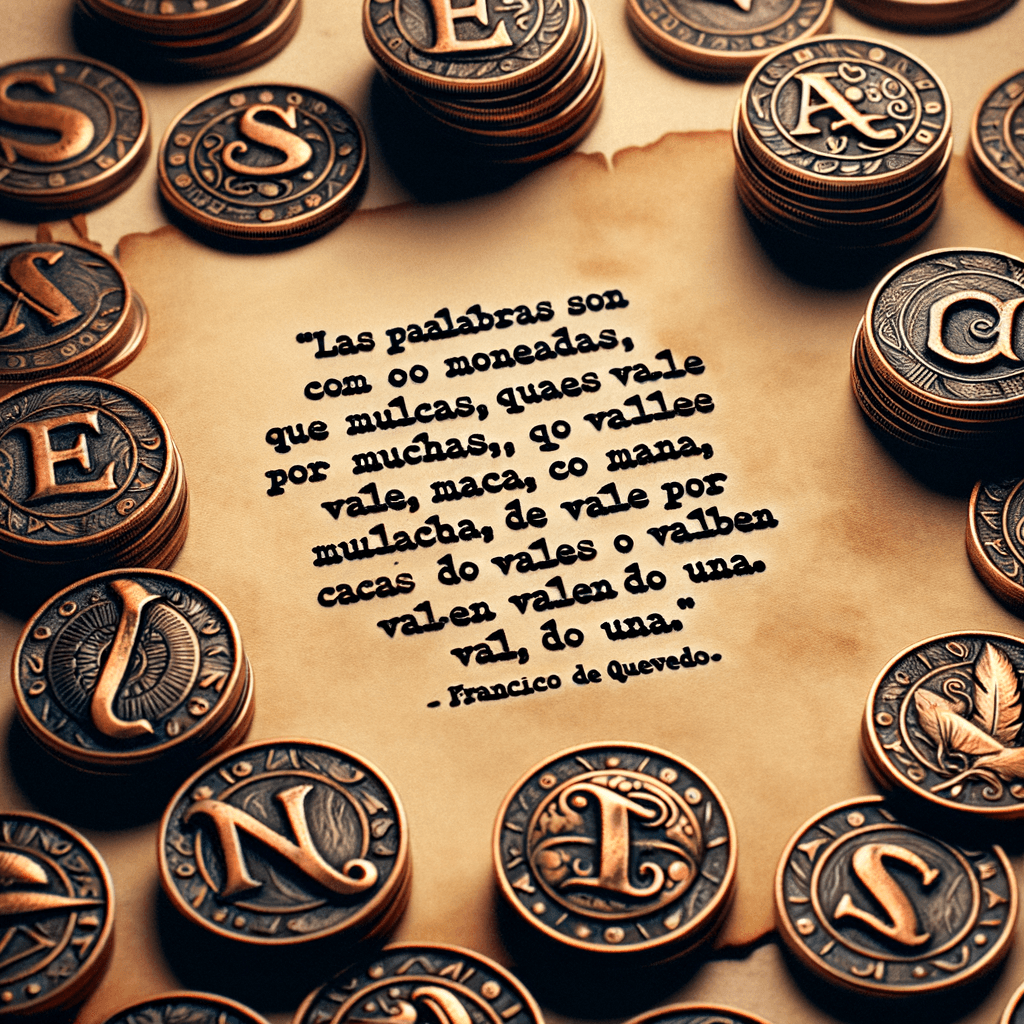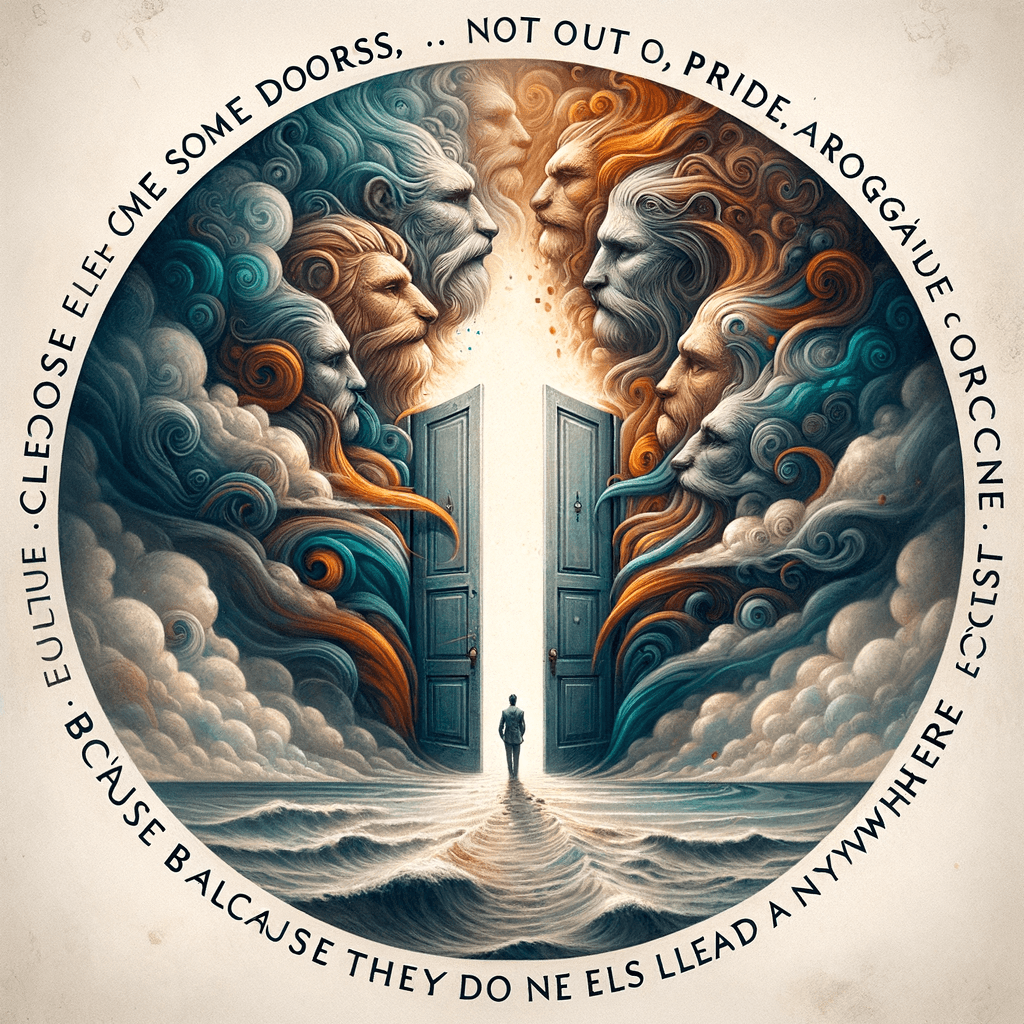#Discernment
Quotes tagged #Discernment
Quotes: 26

Wisdom as the Skill of Selective Attention
William James reframes wisdom as subtraction rather than accumulation: to be wise is not merely to notice more, but to decide what deserves notice at all. At first, that can sound like avoidance, yet his point is sharper—life is too crowded with signals for anyone to treat every detail as equally meaningful. In that sense, overlooking becomes a deliberate act of discernment, not a lapse in care. This shift matters because it relocates wisdom from abstract knowledge into daily practice. Instead of asking, “What should I understand?” James invites the more practical question: “What can I safely ignore so that I can act well?” [...]
Created on: 1/31/2026

Wisdom Means Choosing What Not to Notice
To apply James’s idea, it helps to build a personal filter. One simple approach is to ask: Will this matter in a week? Does it affect health, safety, dignity, or long-term trust? If the answer is no, overlooking becomes a rational option rather than a reactive gamble. Over time, this practice creates a calmer inner life and more stable relationships. By repeatedly steering attention toward what is constructive—and away from what is merely loud—one gradually embodies James’s definition of wisdom: not seeing less, but choosing better. [...]
Created on: 1/30/2026

Clarity on Priorities Dissolves Life’s Noise
Consider a common moment: someone scans their week and realizes the calendar is full, yet nothing significant is moving forward. That discomfort often triggers Newport’s insight in real time. Once the person decides, for instance, that finishing a thesis chapter or rebuilding health is the priority, the schedule suddenly looks different: recurring obligations that once felt “necessary” reveal themselves as optional. From there, the process becomes self-reinforcing. Each removed or renegotiated commitment creates space, and that space makes the chosen priority more visible—further clarifying what belongs and what doesn’t. [...]
Created on: 1/29/2026

Wisdom Means Choosing What to Overlook
James’s line also aligns with older moral traditions that treat attention as character. Stoic thinkers like Epictetus emphasize directing concern toward what one can control while releasing what one cannot (Epictetus’s Discourses, c. 108 AD). This is not indifference; it is a disciplined allocation of concern. Seen this way, overlooking becomes ethical as well as practical. By refusing to obsess over slights, status games, or minor anxieties, a person creates space for responsibility, compassion, and deliberate action—qualities that look very much like wisdom in practice. [...]
Created on: 1/27/2026

Wisdom Means Knowing What to Ignore
Moving from principle to practice, overlooking is often the only way to act decisively. A manager ignores minor imperfections to meet a deadline; a doctor sets aside distracting noise to notice the critical symptom; a parent overlooks a child’s harmless theatrics to preserve peace. In each case, the choice to ignore is what makes competent action possible. This is why the quote feels so usable: it suggests that good judgment is not only about what we include in our reasoning, but also about what we intentionally exclude. The ability to leave some inputs unprocessed is a form of mental efficiency—and often, a form of kindness. [...]
Created on: 1/20/2026

Words Are Like Coins - Francisco de Quevedo
It highlights the power of precise language. Just as some coins are worth more due to their value, a well-thought-out word can hold more weight and meaning than a multitude of less impactful words. [...]
Created on: 6/1/2024

Close Some Doors - Paulo Coelho
This quote advises making pragmatic decisions to close off paths that no longer serve a useful or productive purpose, focusing on practicality rather than emotions. [...]
Created on: 5/22/2024